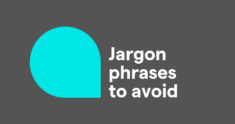You’re almost there.
You’re nearly through drafting a formal letter. It’s not something you make a practice of every day—maybe it’s rare for you to go hundreds of words without an emoji—so this accomplishment will soon be cause for relief, or even celebration.
But first, there’s this pesky letter closing to hammer out. How do you find ways to end a letter, anyway?
Such correspondence typically begins with a flurry of formality: your address, the date, and the recipient’s address. The end of the beginning requires a salutation evoking a slightly more regal tip of the hat than just “Hey.”
Similarly, you need to know how to end a letter in a way that conveys gravitas, but without literally spelling out “This letter was written and sent by a functional member of society who knows how to accomplish things, including fancy letter closings.” Brevity is the better part of valor, a wise editor said.
The best letter closings have a matching tone to everything that’s come before it. If your letter is work-related, you’re probably trying to strike a balance: business-like but not overly brusque, personable but not suspiciously chummy. Here’s how to master many ways to end a letter like a professional.
Close your letter with one meaningful sentence
Whether you’re lining up a meeting, sending in a résumé, or querying a potential resource, you want your letter to end in a way that makes it clear where you stand. Some examples:
- I look forward to meeting you at the seminar on Tuesday, July 11.
- Thanks for your consideration; please let me know if you have any questions.
- My deadline is Friday, so I hope to get your perspective on this matter soon.
- Your guidance has been invaluable, and I hope to work with you again soon.
You might want the person you’re contacting to immediately do something, like mark their calendar, start crafting an urgent response, or add you to the list of people they know to count on in the future. Occasionally, you may just want them to feel appreciated. Whatever that action is, make it clear in your final sentence.
How not to sign off a formal letter
Just as it was very important in sixth grade to not accidentally address your English teacher as “Mom,” it is crucial to not sign off your business letter with “love.” Or “fondly.”
Pause for a moment and imagine the recipient of your formal correspondence sitting at a mahogany desk, masterfully opening your envelope with an old-timey letter opener (who even has those anymore?) and reading in rapt attention until your ending, where you signed: “passionately.” What a delicious nightmare!
In this vein, you don’t want to be too casual when closing a letter. If you’re writing a friend, you can get away with an informal “-xo” or “ciao,” but with new work contacts, you’ll want to dial down your effusion to “warm regards,” “cheers,” or “Happy Friday.”
10 ways to end a business letter
As a writer, you may revel in finding new ways to get your point across—to avoid communicating formulaically. But ending a letter is not an ideal venue for tinkering with language or otherwise reinventing the wheel. Just as such correspondence often begins with the tried-and-true salutation “Dear Person’s Name,” you should be comfortable using a variety of closing salutations. Take a look at some of the best business letter closings you will come across.
1 Yours truly
Like a navy blue jacket or a beige appliance, “yours truly” doesn’t stand out, and that’s good. The message here is “I think we can safely agree how I sign off isn’t the part of this letter that matters.”
2 Sincerely
Another sturdy option: literally, “I mean it.” Again, the purpose of these sign-offs is to unobtrusively get out of the way, and “sincerely” does the job.
3 Thanks again
If you’ve already said “thanks” once, why not say it again? Just be careful not to step on your closing sentence, if that also pertains to gratitude: you don’t want to botch the finale with an unwieldy “thanks again again.”
4 Appreciatively
This one can help you avoid overusing the word “thanks.” It also sounds less clunky than “gratefully.”
5 Respectfully
This one is tinged with deference, so make sure it suits the occasion. For instance, if you’re writing your landlord to enumerate a series of egregious failures and abuses and your closing sentence is “Unfortunately, if these deficiencies are not soon remedied, my next step may be legal action,” then ending with “respectfully” is awkward.
6 Faithfully
If “respectfully” is a little deferential, this one is a cut above. Again, make sure it’s right for the occasion. If you picture someone reading it and cringing, you have other options.
6 Regards
Like “sincerely” and “best,” this one is dependable and restrained, but it comes with a variety of optional accessories. Consider tricking it out with a gentle adjective, like so:
7 Best regards
If you’re concerned that “regards” alone may seem too stiff or pointedly neutral, go ahead and attach “best”—it’s like adding a polite smile.
8 Warm regards
“Warm regards” is one of a few sign-offs you can experiment with involving warmth. While a word like “warmly” assumes too much intimacy for initial correspondence, this route may prove handy once you’re more acquainted: warm wishes.
9 Kind regards
A final variation on the theme of “regards,” this classy number strikes a balance between formality and closeness. If you don’t want to be too friendly but are worried about seeming stuffy or standoffish, “kind regards” is a solid bet.
10 Best
Some see “best” as flippant and hurried. Best what, anyway? Best wishes? Still, others argue it’s your best default option. Judge for yourself.
Once you’re in the habit of sending and receiving important emails and know how to end a business letter, you’ll develop an instinct for when such letter sign-offs make sense and when they’re gauche.
Yours sincerely,
Grammarly






